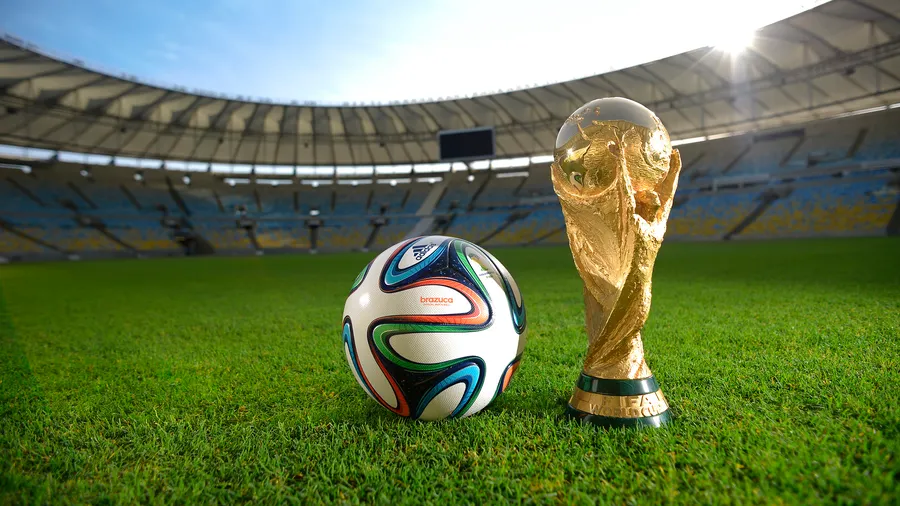The FIFA World Cup, often simply called the World Cup, is the pinnacle of international football (soccer), a quadrennial tournament that captivates billions of fans worldwide. It is more than just a sporting event; it’s a cultural phenomenon that transcends borders, languages, and backgrounds. The World Cup unites nations, ignites passions, and showcases the beautiful game at its finest.
This article delves into the history, significance, impact, and controversies surrounding this global spectacle.
A Brief History:
The inaugural World Cup was held in Uruguay in 1930, with 13 nations participating. Since then, the tournament has grown exponentially, with 32 teams now competing for the coveted trophy.
Throughout its history, the World Cup has witnessed legendary players, iconic moments, and unforgettable matches that have etched themselves into the annals of sporting history.
FIFA World Cup Winners and Hosts (1930-2022):
| Year | Host Country | Winner | Runner-Up | Third Place | Fourth Place |
|---|---|---|---|---|---|
| 1930 | Uruguay | Uruguay | Argentina | United States | Yugoslavia |
| 1934 | Italy | Italy | Czechoslovakia | Germany | Austria |
| 1938 | France | Italy | Hungary | Brazil | Sweden |
| 1950 | Brazil | Uruguay | Brazil | Sweden | Spain |
| 1954 | Switzerland | West Germany | Hungary | Austria | Uruguay |
| 1958 | Sweden | Brazil | Sweden | France | West Germany |
| 1962 | Chile | Brazil | Czechoslovakia | Chile | Yugoslavia |
| 1966 | England | England | West Germany | Portugal | Soviet Union |
| 1970 | Mexico | Brazil | Italy | West Germany | Uruguay |
| 1974 | West Germany | West Germany | Netherlands | Poland | Brazil |
| 1978 | Argentina | Argentina | Netherlands | Brazil | Italy |
| 1982 | Spain | Italy | West Germany | Poland | France |
| 1986 | Mexico | Argentina | West Germany | France | Belgium |
| 1990 | Italy | West Germany | Argentina | Italy | England |
| 1994 | United States | Brazil | Italy | Sweden | Bulgaria |
| 1998 | France | France | Brazil | Croatia | Netherlands |
| 2002 | South Korea/Japan | Brazil | Germany | Turkey | South Korea |
| 2006 | Germany | Italy | France | Germany | Portugal |
| 2010 | South Africa | Spain | Netherlands | Germany | Uruguay |
| 2014 | Brazil | Germany | Argentina | Netherlands | Brazil |
| 2018 | Russia | France | Croatia | Belgium | England |
| 2022 | Qatar | Argentina | France | Croatia | Morocco |
- Most Wins: Brazil (5)
- Most Finals: Germany (8)
- Most Third Place Finishes: Germany (4)
- First Winner: Uruguay (1930)
- Current Champion: Argentina (2022)
Significance and Impact:
The World Cup is not just about football; it’s a platform for cultural exchange, national pride, and global unity. It brings together people from diverse backgrounds to celebrate their shared love for the sport. The tournament’s economic impact is also significant, generating billions of dollars in revenue through tourism, merchandise, and broadcasting rights.
Furthermore, the World Cup can have a profound social impact, promoting peace, understanding, and cooperation among nations. It can also inspire young people to pursue their dreams and strive for excellence in sports and other fields.
Head over to World Cups to read more about the history and current events!
Memorable Moments and Legends:
The World Cup has produced countless unforgettable moments that have become part of sporting folklore. From Maradona’s “Hand of God” goal to Zidane’s headbutt, these moments have captured the drama, excitement, and unpredictability of the tournament.
Legendary players like Pelé, Maradona, Zidane, Ronaldo, and Messi have graced the World Cup stage, showcasing their extraordinary skills and leaving an indelible mark on the sport’s history. Their performances have inspired generations of footballers and fans alike.
Controversies and Challenges:
Despite its positive impact, the World Cup has not been without its share of controversies. Issues such as corruption, human rights abuses, and environmental concerns have plagued the tournament in recent years. These challenges raise important questions about the ethics and sustainability of hosting mega-sporting events.
The Future of the World Cup:
As the World Cup continues to evolve, it faces new challenges and opportunities. The tournament’s expansion to 48 teams in 2026 will bring more nations into the fold, further increasing its global reach. However, it also raises questions about the format, logistics, and potential dilution of quality.
The rise of new technologies, such as VAR (Video Assistant Referee), has also changed the way the game is officiated and experienced by fans. The use of technology is likely to continue to evolve, enhancing the accuracy and fairness of the game.
Conclusion:
The World Cup is more than just a football tournament; it’s a global event that brings people together, inspires dreams, and showcases the power of sport to unite and uplift. While it faces challenges and controversies, its enduring appeal and impact are undeniable.
The World Cup will continue to be a source of excitement, passion, and inspiration for generations to come.
Originally posted 2024-06-06 08:39:16.




